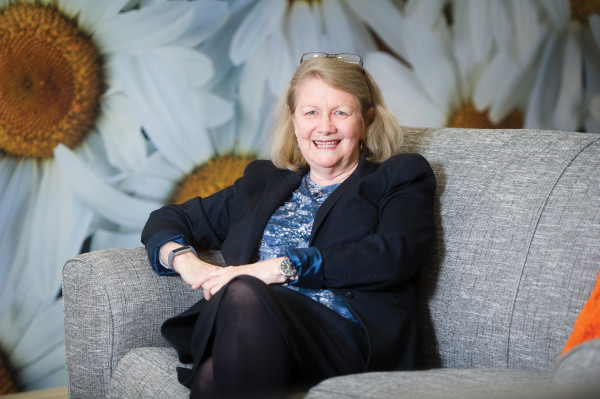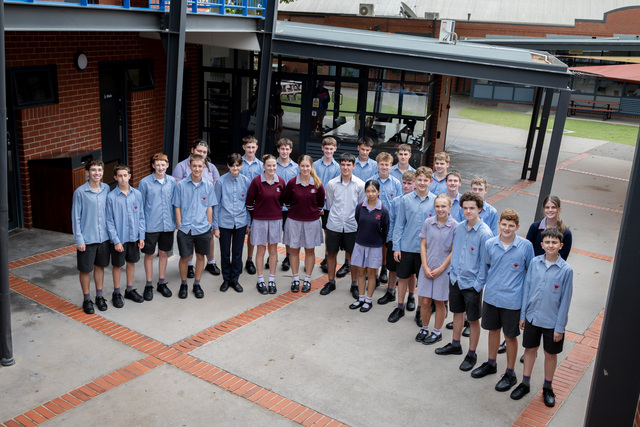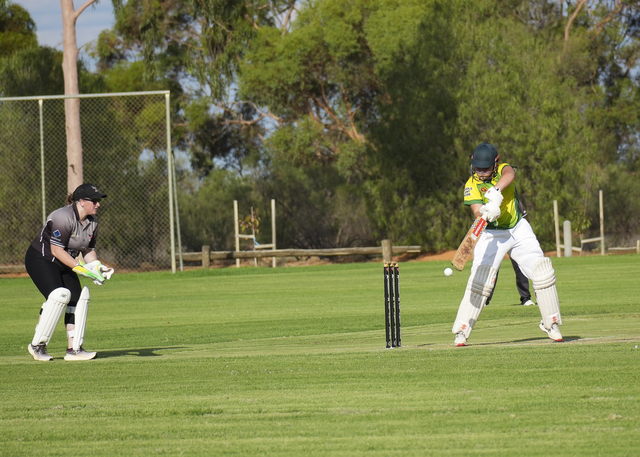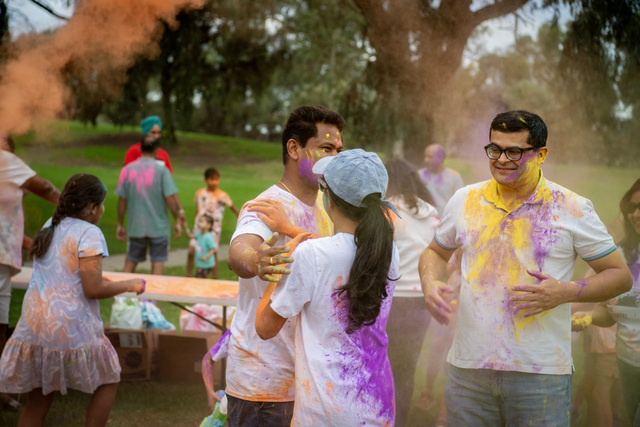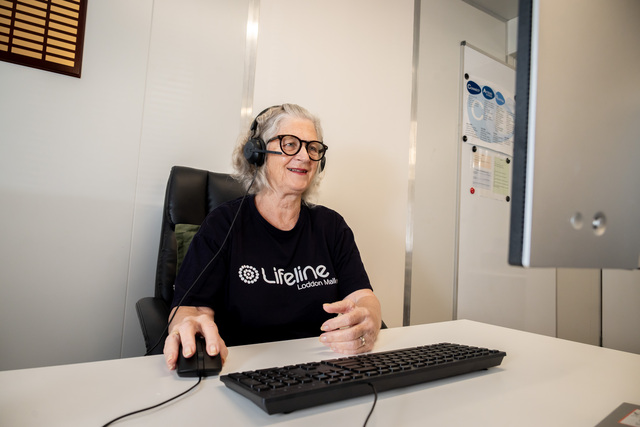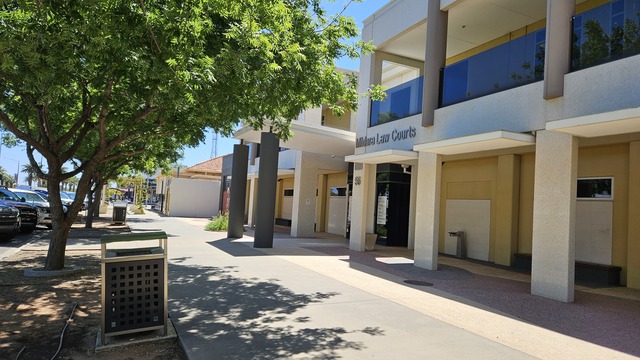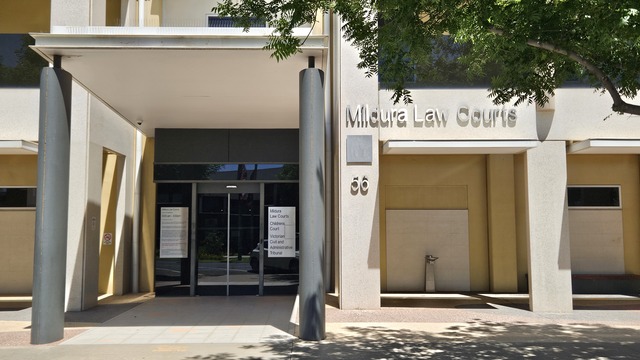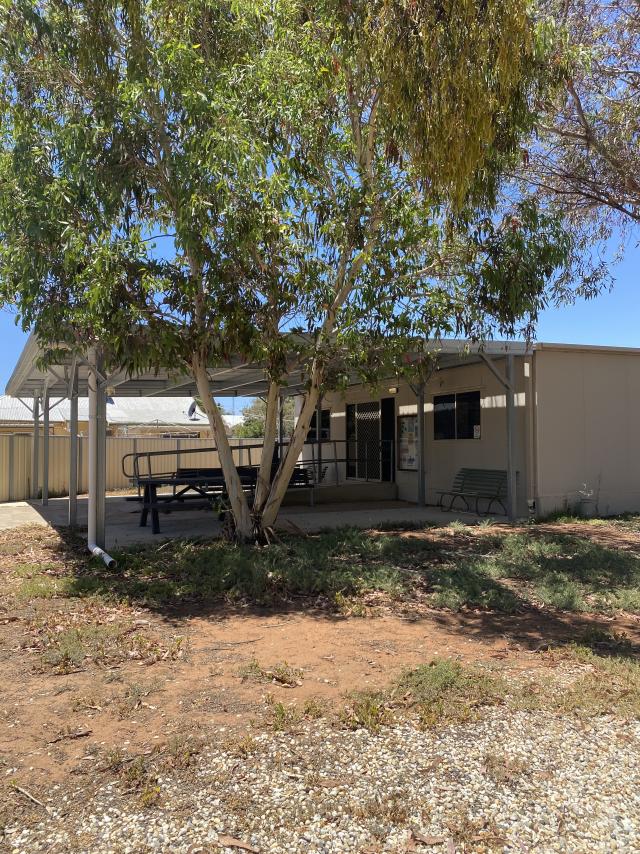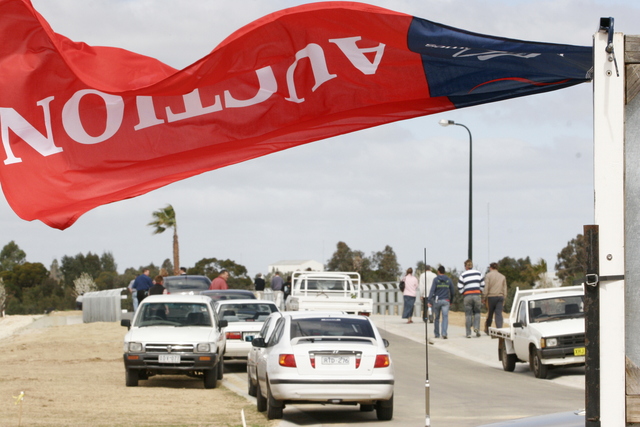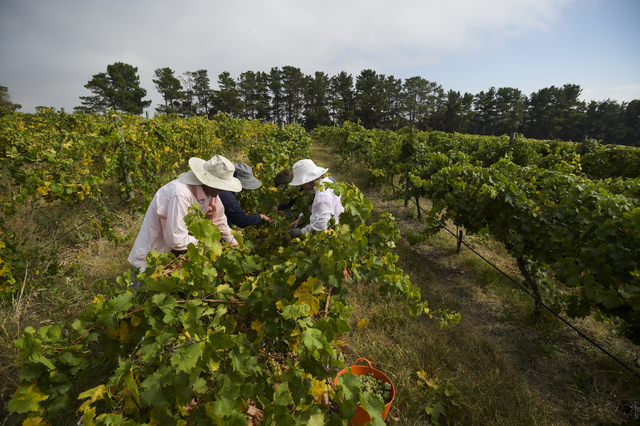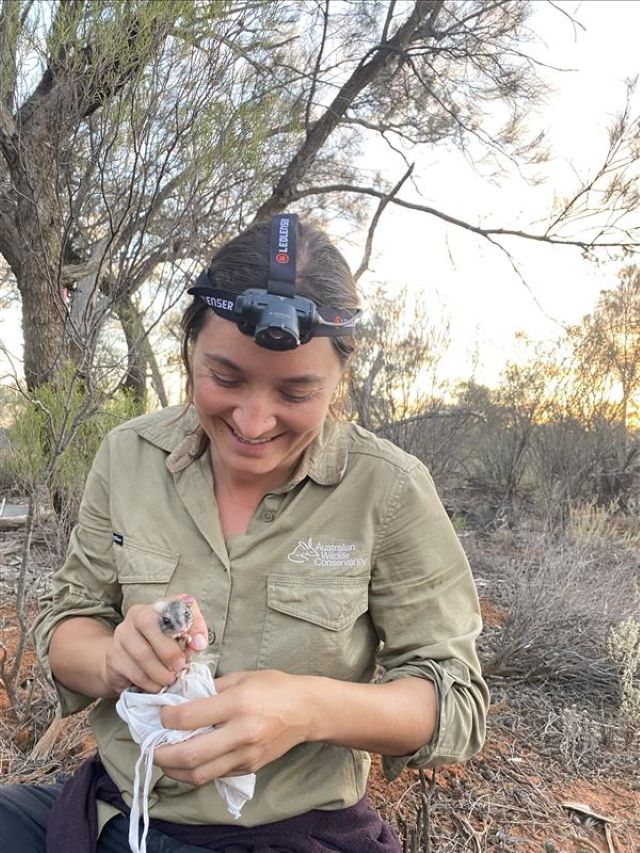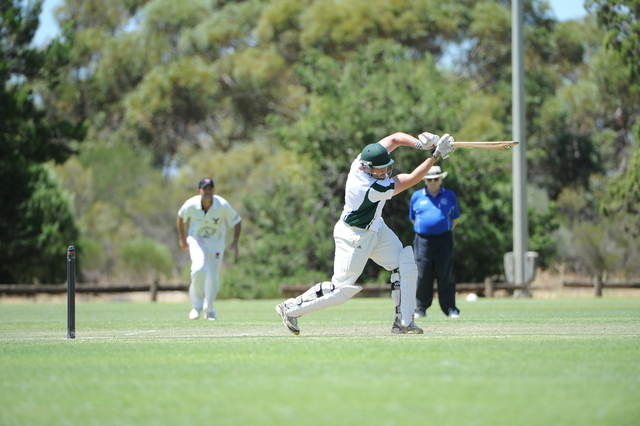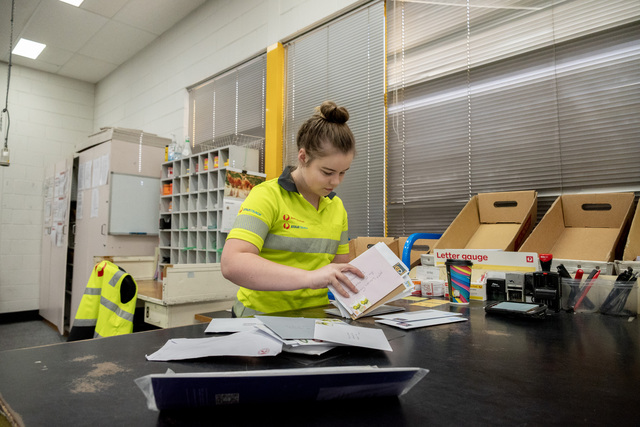For some, a career as a social worker may seem limited, but if you ask Ann Killen, the world is your oyster. Caitlyn Morgan sat down with Ann to discuss what has been an “extraordinary” and “incredible” career. Picture: Carmel Zaccone
ANN Killen was only just a teenager when she decided upon becoming a social worker.
Having spent a number of years living at the Bonegilla Migrant Reception and Training Centre in the caretakers house before moving to Inverell, NSW, Ann had already gained valuable life experience and knowledge that would set her up for a long career working with people from varied backgrounds and communities.
“Growing up in rural areas influenced my passion for those in these areas and those who were disadvantaged,” she says.
“From a young age I saw a lot of poverty, people who were disadvantaged and people struggling in rural areas and was also influenced by my early experience with people from all different cultures, which is something that helped me later on.
“I, too, grew up in a fairly disadvantaged family; a family of six children with a father who had been a soldier sent to New Guinea during WWII and became an alcoholic because of that trauma and that was something that impacted the whole family.”
Ann recalls the moment she knew how she wanted to spend her life.
“Even before meeting a social worker, at 13 I decided it was what I wanted to be,” she says.
“I was at church one day and somebody had come from Sydney talking about the work they had done with people in poverty and it was then I knew that was what I also wanted to do.”
After finishing high school, Ann started her three-year degree in social work at Sydney University, before transferring to Flinders University in South Australia for her final year.
It was then that her long career began, first working in Clare for the government in child protection.
Wisconsin
TAKING a break from her job in Australia, Ann spent a year studying a masters of social work in Madison at the University of Wisconsin.
It was there she discovered the program Protective Behaviours.
While the name of the program may not sound familiar, the school activity where you were required to trace your hand and list five people who you could call upon if you are scared or uncomfortable may spark your memory.
This was one element of the program, which Ann brought to Australia in the early 1980s.
“It was during placement that I went to the countryside where a lady was running a workshop on a program she created,” Ann says.
“That lady was Peg Flandreau-West and that workshop was about the program Protective Behaviours.
“Together we returned to Australia. For the next two years we ran around the country, training peers on the program, which is now used Australia-wide.
“That is something I still am very proud of.”
On her return to Australia, Ann was awarded the Catherine Helen Spence, which is offered every four years and provides financial support for a woman to undertake the investigation of social problems and/or a study in the field of social science in Australia and overseas.
Ann bought an around the world ticket and travelled to the US, the UK and the Philippines for three months, where she researched foster care.
Adoption
IN the late 1980s and early 1990s, Ann was on a number of boards that looked at Australia’s adoption policy and was the manager of adoption services, family and community services in South Australia
“At the time adoption was becoming less common, with a decline in the number of unwanted babies born with there no longer a stigma surrounding being a single parent, more access to contraception and abortion,” she recalls.
“It was during that time that the legislation was bought in that once a child was 18, they had the right to track down their birth parents and their birth parents could find them. Being involved in that decision was extremely interesting.”
It was also during that time that Ann witnessed the most “heart-breaking” moment in her career.
“In the process of that was the 1990 revolution in Romania, after the dictator at the time banned contraception and people soon discovered there was orphanages just filled with children but not all were available to be adopted that I joined someone from Immigration to visit Romania to discuss with the government how we could set up legal protocols so we could adopt those children and ensure they weren’t being sold,” she says.
“The most heartbreaking thing I have ever seen was so many toddlers in cots, just rocking back and forth.
“People had sent over hundreds of toys, but instead of being given to the children in the orphanages, they would sometimes go home with those working there for their children or were kept in their boxes and nailed to the walls so the children could still see them. After seeing orphanage after orphanage, I just wept as soon as I sat in my chair on the plane to go home.”
On her return, Ann wrote a report which would then see the Australian government give the all clear for Australia’s to adopt children from Romania.
Africa
ONE of her next big career moves was in 1991, when Ann, her husband and their four-year-old daughter Gemma moved to Africa.
“My husband was offered a job in The Gambia, in west Africa, so he went to work and I went to the social welfare development and asked if I could volunteer,” she says.
“At the time I was the only person apart from the director that had a degree, so instead of volunteering, they offered me a job.
“I was paid $50USD a month, that was a senior salary and one that covered the cost of two maids, a gardener and night watchman.
“Unfortunately the director passed away quite suddenly six months later and I was asked to step into that role, while they sent someone off to gain their qualification over the next three years.”
In July 1994, Ann recalls a day she will never forget.
“There was a military coup, at the time I was chair of the school board and overnight the population of the school had halved with lots of people leaving the country,” she says.
“On the day of the coup, no one knew what was happening. My maid was frightened and wanted to go home so I offered to drive her home.
“The gardener joined as he was curious of what was going on. While on the way we were stopped but after explaining I was taking her home we continued on, again we were stopped, the man clearly stoned and possibly drunk stood with a grenade in one hand, a rifle in the other.
“I don’t know how but I talked him down and eventually he let me back in my car and to drive back home.
“It was the scariest thing to happen while I was in Africa. We only stayed for another year before moving to Uganda.”
After resigning from her position as director, Ann became a social development consultant, where she researched and developed programs on street children, education, water and sanitation and women’s rights.
Ann worked with UNICEF, World Bank, African Development Bank, ActionAID, Government of Uganda and Tahal Israel.
While working with UNICEF, Ann recalls the day she received a call from the local police about 200 street children who had been arrested in a bid to remove them from the street ahead of a visit from Bill Clinton.
“Bill was coming in a day or two and they had to do something as they weren’t allowed to have children in the cells,” she says.
“It was school holidays, so we hired a boarding school that was empty, with a big playground and accommodation and worked with Save the Children to move all of the children to the accommodation. They were then all fed, washed, heath checked and documented.
“Within a few days, half of them had returned home with funding used to have them each receive a pack, which contained bedding, food and a chicken, donkey, goat or sheep that the family could then use to eat or sell in order for them to keep the child.”
Over the years, Ann has called home to many places across the world.
Following a few years in London, she returned to Australia in 2002 with her then teenage daughter.
She has since worked as a lecturer at the University of South Australia, for the Department of Family and Community Services (NSW) and as child protection operations manager for the Victorian Department Health and Social Services.
A new home in Sunraysia
EIGHTEEN months ago, Ann made her next career move which landed her in Sunraysia.
She is currently the general manager of community services at Mallee Family Care.
“The thing about MFC is that they have more than 60 funded programs and it’s rural,” she says.
“These are things I am so passionate about and MFC is about working holistically to help people who are disadvantaged.”
With her daughter now in her 30s and pursuing her own dreams while living in Canberra, Ann has found her home life is a lot more quiet. Well, as quiet as it can be with three ducks, two cats and a rabbit to keep her company.
“I love being here, it’s a great place to be,” Ann says.
While Ann has no plans on leaving Sunraysia anytime soon, she admits she does always have her eyes open for her next adventure.
“I have had these great opportunities and I didn’t plan for any of it,”she says when reflecting on her career.
“It’s all about being in the right place, at the right time.
“As a social worker I have had a different and interesting career and often people don’t think of the things and opportunities social workers can have.
“It’s all about being a bit daring, taking on something new and grabbing opportunities as they come.”

